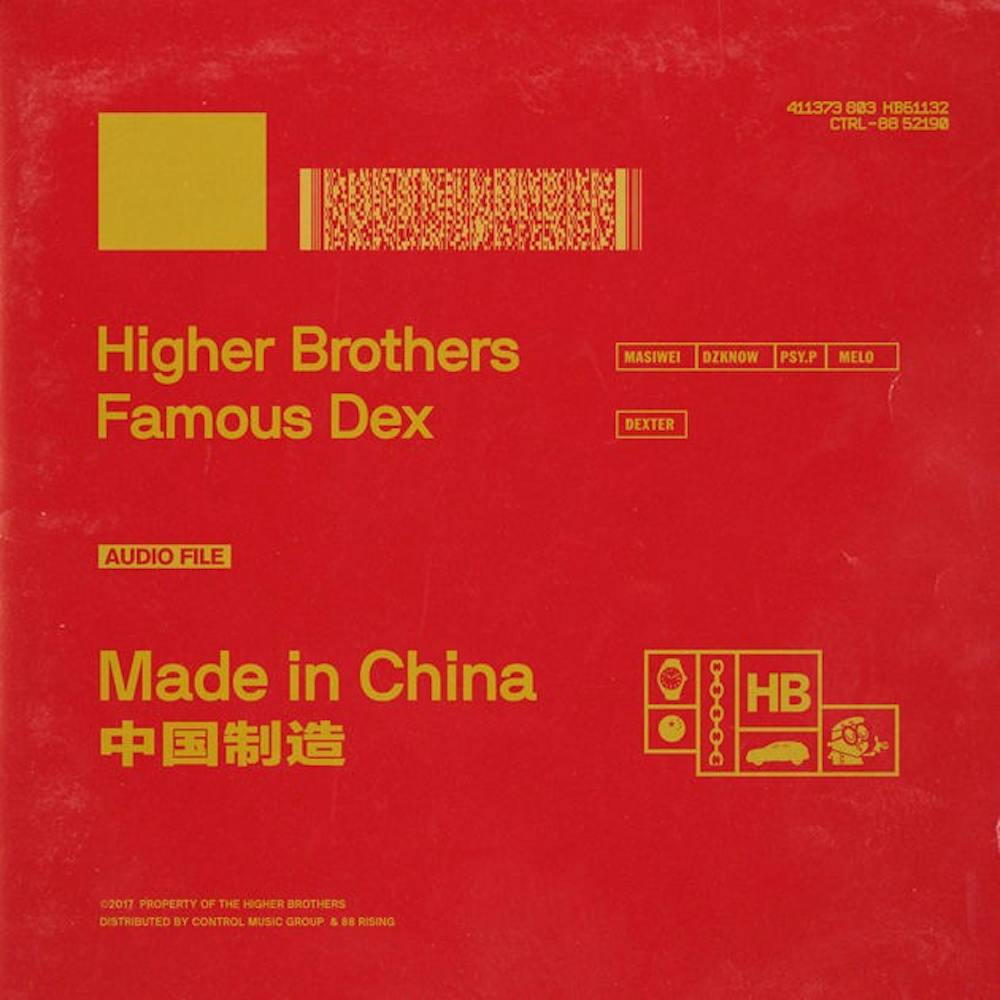Between piano keys sampled in the background, the snare drums that kick in within a few seconds, and the bass that soon after blasts through your speakers, at first listen you would believe Higher Brothers’ “Yahh” to be a Zaytoven–produced track off Migos’ album, Culture. However, once the lyrics start flowing, most people do a double take. That’s mostly due to the fact that while these four rappers rap in a similar fashion to Migos, the Higher Brothers rep Chengdu, China, not Atlanta, Georgia.
China is a contentious country in the eyes of many US citizens, especially considering the public perception of the government’s extreme censorship. Higher Brothers’ virality certainly hasn’t come easily; as the Higher Brothers explained in an interview, “We have less access due to the Chinese firewall...we have to download a VPN app which allows you to breach the firewall, then we can look for stuff on YouTube or SoundCloud”. Many Americans don't consider China to be a bastion of rap music production, let alone Spotify Top 100 hits. However, Higher Brothers is trying to do away with this notion, gaining millions of views on their music videos—for instance, the music video for their song about blowing up on social media application “WeChat” has 2.7 million views on YouTube. Their tongue–in–cheek track, “Made in China,” has 4.5 million. In a country where so few can freely access American social media sites, Higher Brothers has found a way to go viral.
One of the most recognizable aspects of Higher Brothers’ sound that has drawn this international attention is the “triplet” flow, a rapping scheme typically associated with Migos. Higher Brothers use Migos' scheme to their maximum potential, showing that whether or not you understand the Sichuan province dialect of Mandarin, Higher Brothers can stack verses on top of each other with confidence and style. The four members—Masiwei, Dzknow, Psy.P, and Melo—work well off of one another and maintain the group’s sense of playful rebelliousness. The rap group’s debut album, Black Cab, is named after the shady Chinese fake taxi business—detailing Higher Brothers’ experiences with running an illegal taxi company. Between then and now, Higher Brothers reportedly slept in a studio while recording their album after not being able to afford an apartment, emailing producers whose beats they found on YouTube and recording over those beats.
While Higher Brothers relies on word of mouth and social media to propel their music at the moment, the appeal and intrigue of their unique place in the global reach of hip–hop means they won’t be underground for long. Since Black Cab’s debut on May 31, the tens of millions of views on YouTube indicate that the popularity of the group “Made in China” is skyrocketing.

